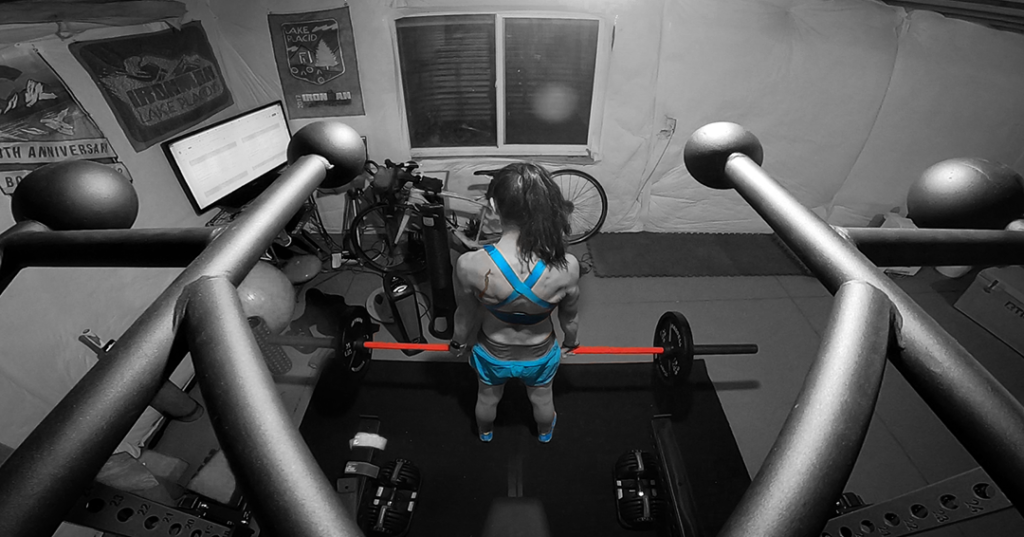
I’ll start right off with a spoiler: YES, you CAN increase your metabolism.
Struggling to lose weight because of a slow metabolism? Lamenting over years past when you could eat whatever you wanted without gaining weight? Wondering if there’s anything you can do to speed it up a bit?
…and what exactly IS metabolism, anyway?
In this article, I’ll go through several common Q&As about metabolism, and I’ll provide you with the best ways to give it a boost. Strap in, and let’s discuss.
What the hell IS metabolism?
Metabolism is the sum of all chemical processes that occur within our bodies in order to maintain life. Processes like breathing, digestion, regulating body temperature, building and repairing cells, and more. Since this requires energy, it can also be thought of as how much energy our bodies use to maintain these processes.
Energy = calories.
Let’s take a look at this chart that breaks down TDEE – Total Daily Energy Expenditure – and shows us what contributes to energy out, or calories burned throughout a day:
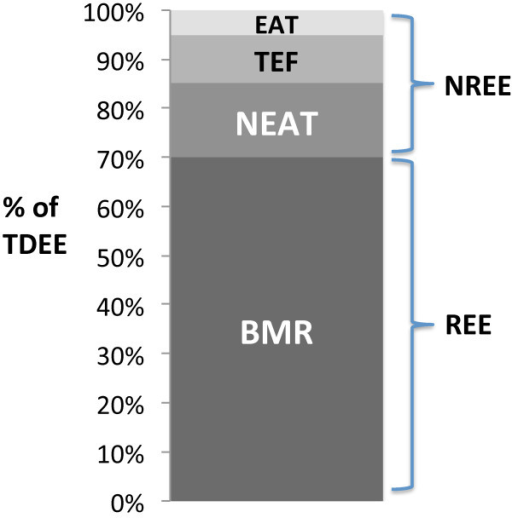
I’ll explain these four categories, starting at the bottom. Hang on to these acronyms, because I’ll continue to reference them throughout this article.
1. BMR: Basal Metabolic Rate
BMR, or basal metabolic rate, is the number of calories you burn in order to stay alive if you were to lie in bed all day without moving at all.
A few factors that determine your BMR are your age, sex, and weight – the last of which is probably the most relevant here. The bigger you are, the higher your BMR, and the more calories you burn at rest. Conversely, as you lose weight, your BMR will go down and you’ll burn fewer calories at rest.
2. NEAT: Non-Exercise Activity Thermogenesis
NEAT, or non-exercise activity thermogenesis, is all movement outside of purposeful exercise. This could be…
- Walking from your car to the office
- Grocery shopping
- Fidgeting at your desk
- Washing the dishes
- Putting laundry away
- Playing with your kids
- etc.
Basically, any time you’re moving your body that’s not scheduled exercise contributes to NEAT. It’s a pretty substantial portion of TDEE. We’ll come back to this later.
3. TEF: Thermic Effect of Food
TEF, or thermic effect of food, is the digestion and processing of your food. Yup, this takes energy. And the amount of energy varies among carbohydrates, protein, and fat. Again, we’ll come back to this later.
4. EAT: Exercise Activity Thermogenesis
EAT, or exercise activity thermogenesis, is just that: exercise. It’s your planned run, gym workout, bike ride, walk, volleyball game, or whatever it may be.
The number of calories burned during exercise will vary among individuals as well, largely due to weight. Like BMR, the heavier you are, the more calories you’ll burn.
What may be surprising is how small a percentage of TDEE exercise activity thermogenesis is. The number of calories you burn through exercise isn’t nearly as many as you think over the course of a whole day.
BMR, NEAT, TEF, and EAT all come together to produce TDEE and make up your daily metabolism.

What does it mean to have a fast or slow metabolism?
Put simply, a faster metabolism will burn more calories through these four outlets – energy expended while resting (BMR), daily movement (NEAT), digesting your food (TEF), and intentional exercise (EAT).
Not everyone’s body utilizes the four outlets in the same proportions. Maybe one person has a desk job so their NEAT is low, but their BMR is high and helps with a faster metabolism. Maybe another person doesn’t exercise so their EAT is low, but they have an active job so their NEAT contributes to a high metabolism. Or another combination of one or more.
Conversely, a slower metabolism will burn fewer calories through any combination of these categories.
Now, it’s worth noting that NEAT (your daily movement outside of exercise) may have the most influence on increasing metabolism. How much you move throughout an entire day can really add up. More active folks are going to have a faster metabolism.
So when someone says they’ve noticed they have a fast metabolism, it’s most likely less due to their genetic makeup and more due to their NEAT. Which is good news, really. This means you could potentially have a faster metabolism, too.
Speaking of genetics…
Is metabolism genetic?
Genetics may play a small role. Two people who are the same exact weight, height, age, and sex may not have the same exact BMR. Other conditions, such as hypothyroidism, can have an effect as well – but only without medication to bring thyroid levels back within a normal range.
So yes, someone else might naturally have a faster or slower metabolism than you. Fat loss may be a little more difficult for some than for others. But it’s not all that different from, say, someone else who finds it easier to learn a language than you do. Or to master a musical instrument. You’re not doomed to your genes, so don’t let that stand in your way.
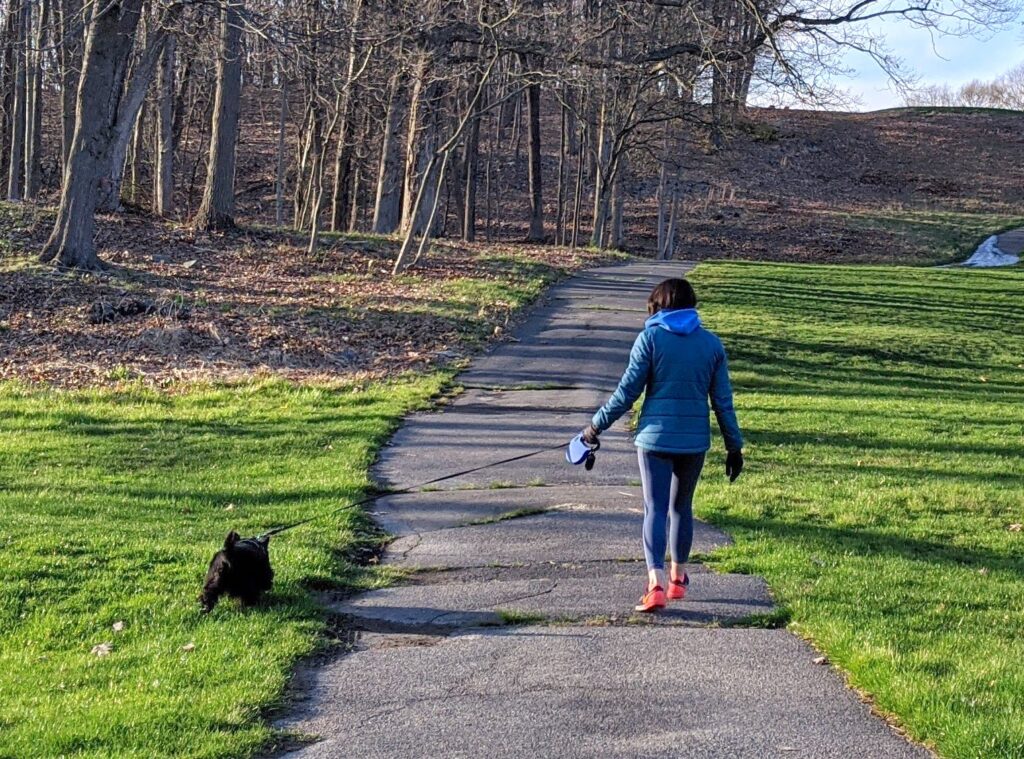
How can you determine if your lifestyle is suited to your metabolism?
Again, you’re not stuck with what you’ve got. It’s less about altering your lifestyle to fit a certain metabolism. Rather, it’s about altering your lifestyle to INFLUENCE your metabolism.
That’s what I’ll cover next.
How much control do you have over your metabolism?
At the end of this article, I’ll sum up the most beneficial things you can do to improve your metabolism. But actually, they all lie here in the answer to this question. So don’t skip this one.
How much control do you have? Short answer: a decent amount. Probably more than you think.
1. BMR is the most out of your control – unless you gain weight to increase that number, but if your goal is fat loss, that’s a bit counterintuitive. Though, the more muscle you have, the more calories you’ll burn through BMR (in contrast to fat).
2. TEF, digestion, is where you may think you have no control, but you do. Protein happens to have a much higher thermic effect than carbohydrates and fat. It takes more energy to digest and process protein. Increasing your protein intake to 0.7 to 1 gram per pound of your goal body weight will burn more calories than if you ate less protein.
3. EAT, planned exercise, has much less of an influence than you think. Does it help? Of course. But remember, it’s the smallest portion of the whole chart. If you want to drastically improve your metabolism, look elsewhere than adding multiple hours of exercise to your day.
In fact, adding in extreme exercise, particularly cardio activities, can potentially diminish NEAT.
As an example, I used to do that thing where I perpetually jiggled my leg up and down while I was sitting. It used to drive my mom up a wall because I’d do it while we were at the dinner table, which reverberated the entire floor and made it feel like there was an earthquake going on. (The worst part was that it was largely unconscious; she’d ask me to stop, I’d oblige, and 30 seconds later she’d explode, “YOU’RE DOING IT AGAIN!” Sure enough, I’d resumed jiggling my leg without even realizing it.)
Interestingly, ever since I got heavily into endurance sports and triathlon training (EAT), I don’t do that anymore. It’s like my body is that much more tired after all the training I do, so it has no energy left for that perpetual jiggling (NEAT).
Now, I’m NOT saying cardio is bad. Cardio is fantastic. I’m saying that if you want to increase your metabolism, the answer is NOT to go to the extreme and do a HIIT workout for two hours every single day because you want to burn as many calories as humanly possible.
A final note on EAT: strength training can be quite beneficial because you’re building muscle. The more muscle mass you have, the more calories you’ll burn at rest. Now, it’s not a drastic, mind-blowing difference. But still, having more muscle mass can mitigate any drops in BMR. Remember, as you lose fat, you’ll burn fewer calories through BMR. If you maintain muscle, that number won’t drop quite as much.
Building muscle offers the additional benefits of keeping you strong, healthy, and able to move better and more efficiently, especially as you age.
4. NEAT is where you can have the most control. It’ll certainly be more difficult if you have a desk job versus a job where you’re constantly on your feet, but you can still look for ways to actively add movement to your day:
- Take 5-minute walk breaks every hour.
- Park extra far away from the store.
- Take the stairs instead of the elevator.
- Track your steps and aim for at least 7000 per day.
Adding in movement will have an enormous influence on the total calories you burn over the course of a day.

Can your metabolism slow down if you don’t eat enough?
Not eating enough CAN affect your metabolism, but NOT because your body is entering “starvation mode” and holding onto fat.
Let’s look again at each of the four categories of TDEE.
1. BMR – let’s say you’re not eating enough protein. Even if you lose some weight, you may also lose muscle, resulting in a lower BMR. This means fewer calories burned.
2. NEAT – if you’re not eating enough, you may have less energy throughout the day. You’ll be less likely to move, whether going for a walk, taking the stairs, or just fidgeting at your desk.
3. TEF – again, if you’re not eating enough protein, calories burned through digestion will be lower.
4. EAT – like NEAT, you may not have enough energy for your workouts. You may skip exercise sessions or cut them short, resulting in fewer calories burned there.
EAT can also affect NEAT, as I mentioned before with the example of jiggling my leg. Say you’re not fueling enough for your workouts, but you push through them anyway. You may be left exhausted, and you collapse on the couch for the rest of the day and get in no extra movement through NEAT.
Am I hitting a plateau because my metabolism is changing?
It’s possible. But I want to discourage you from jumping to that conclusion immediately.
Why is it possible?
Say you truly are being very consistent with your nutrition, you haven’t changed your exercise or daily movement, and you’ve lost weight but now it’s stayed the same for a while.
Remember, if you’ve lost weight, your BMR has gone down. This is one reason why it can get more difficult to lose fat the further you are in your journey. To continue toward your goal, you’ll either have to eat fewer calories or look for other ways to increase NEAT to help out a bit.
But again, not losing any weight for a few weeks and then saying, “oh, it must be my metabolism,” isn’t a great approach.
First, look at your consistency. Be honest with yourself. If you’re tracking or writing down your food, are you writing it ALL down? Are you TRULY being consistent? Sometimes you might not even realize if something changed or if you haven’t included certain foods in your log.
For example, a nutrition client was recently looking for potential “sneaky” ways in which calories were adding up throughout the day. She discovered that she actually puts 10 teaspoons of cream in her coffee when she previously had estimated two or three. And she has four cups of coffee a day! Not that this is “bad”; it was just more calories than she believed she was consuming.
Take a good, hard look at your consistency and your nutrition first. THEN consider metabolism changes.
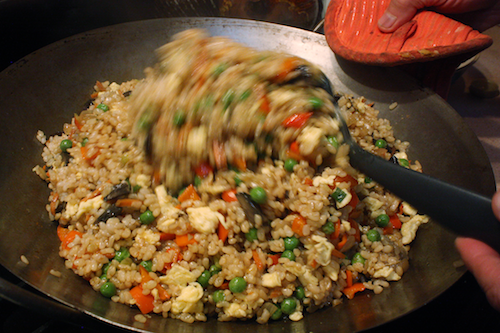
Does metabolism decrease as you get older? How can you mitigate this?
According to a recent study, your metabolism doesn’t decrease nearly as early as you think. In fact, it pretty much stays the same between ages 20 and 60.
So if you’ve ever said or thought, “my metabolism has gotten much slower as I’ve gotten older,” but you’re under 60…think again. You’re not wrong, exactly – that phrase isn’t necessarily false. It just has to do with lifestyle changes as you’ve gotten older, not the fact that you’re older.
Take another of my nutrition clients, for example: a retired schoolteacher who tells me she understands one reason she’s gained weight over the years.
“I’m not moving like I was,” she says. When she was teaching, she’d constantly walk from one end of the school to the other, around her classroom, to the gym or cafeteria, etc. This constant walking over the course of an entire school day added up. Then she retired, COVID hit, and all of a sudden she was sitting at home for the majority of the day instead of being on her feet for hours.
Another friend described having a pretty good idea why her metabolism may have changed, saying she “stopped being a part-time athlete and became a part-time couch potato.”
Other clients have compared themselves to their college years. It’s common to hear something like, “I had a ridiculous metabolism in college, but since then, it’s gone way downhill.”
Think about what you were doing in college. Walking across a vast campus from class to class, to the dining hall, to the gym or rec center, multiple times a day. Maybe going out on weekends and walking through town or bar hopping.
Bonus if you went to school on a hilly campus. One afternoon in college, I stopped after class to pick up a large package at the bottom of campus, then lugged it (and my backpack) aaaaallll the way back up to my dorm building, which was comprised of, like, six staircases, multiple hills, and probably took at least 25 minutes. I remember I ended up walking with another girl who was coincidentally also picking up a large package and then trekking to the same dorm as me; we both had to stop a few times and commiserate on how ridiculous the situation was, especially since it was also 10 degrees outside.
Anyway.
What likely happens after college for many people? You might get a desk job, and suddenly you’re sitting most of the day instead of walking around.
So, if you’re under 60, but you’re blaming your age for struggling to lose weight…sorry, but it’s an excuse. And not a valid one according to the results of that study. It’s not your age. It’s the lifestyle changes that have come with age.
Now, metabolism does start to drop after age 60. So yes, fat loss might get harder from there. But no matter if you’re over 60 or under, there are still things you can do to mitigate the change. Namely, what I touched on when I answered the question regarding how much control you have over metabolism, and what I’m about to summarize below.
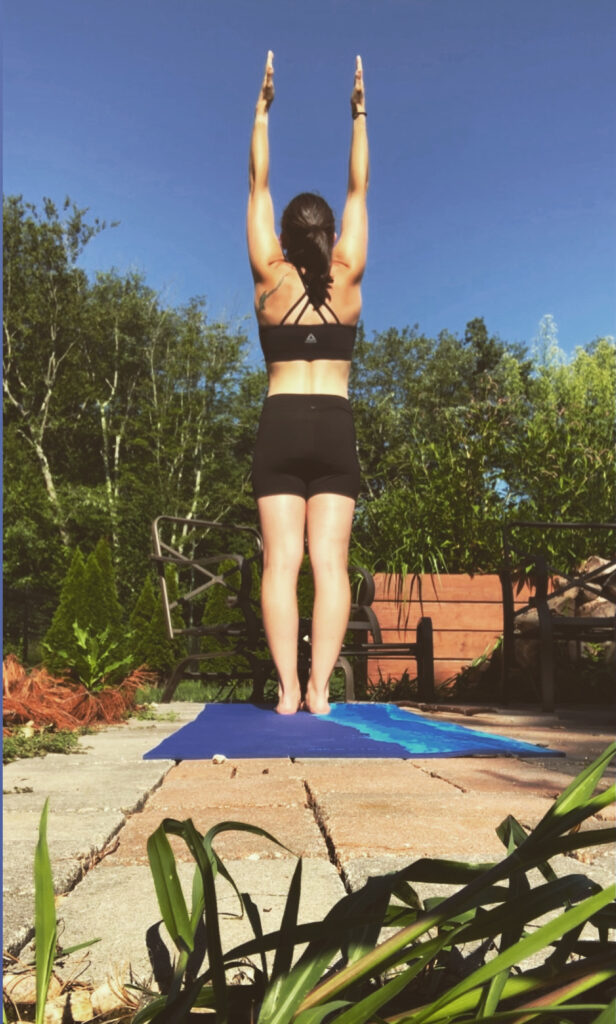
Summary: Top 3 ways to improve your metabolism
1. Move.
Move your body.
Find subtle but frequent ways to increase your NEAT.
Get up from your desk. Go for daily walks. Take the stairs. Park at the other end of the parking lot. Get 7000 steps a day. Do chores. Walk in circles around your living room when you’re on the phone. Dance around the kitchen while you’re cooking (maybe not with sharp utensils in your hand).
Whatever you want. Just move more. It will really, really add up.
2. Lift weights.
Building and maintaining muscle is key for so many reasons. Yes, it burns more calories at rest than fat, but it’s so much more than that. It makes you stronger. It ensures good bone health. It reduces your risk of falling when you get older. It improves your likelihood of moving around efficiently, period, as you get older. This, in turn, enables you to stay active for a long time (and keep up your EAT and NEAT).
Lift heavy sh*t. It will help.
3. Eat more protein.
Protein, like muscle building, has so many benefits. It increases the number of calories burned through digestion. It allows you to build the muscle you’re trying to by strength training. You’ll mitigate the loss of muscle as you get older. You’ll feel fuller and snack less throughout the day. You’ll recover better from your workouts and have the energy to continue moving around throughout the rest of the day.
Aim for 0.7 to 1 gram of protein per pound of goal body weight, and the benefits will pay off.
If you’ve made it this far, and your head isn’t falling off…thank you for reading!
I hope this has enlightened you and cleared up any myths or confusion about metabolism.
Still struggling to lose fat, or want to delve deeper into forming new habits to improve your metabolism?
I’d love to help. Send me a message and we can chat!
Happy metabolizing!
-Dina
Dina Grimaldi is a triathlon & nutrition coach who helps athletes reach their goals while finding the balance they need to fit training comfortably into their lives, and who guides and supports those with nutrition or health goals to cultivate a lifestyle of sustainable habits and a healthy relationship with food.
